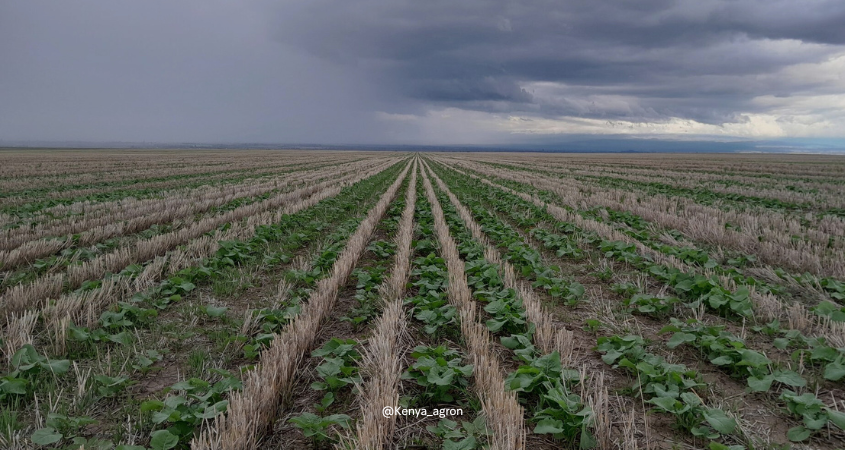
As we confront the pressing challenge of climate change, understanding the pivotal role of soil organic matter (SOM) is crucial. Let’s explore how enhancing SOM can serve as a powerful tool in our efforts to mitigate the impacts of climate change:
Soil is one of the largest carbon sinks on the planet. For every 1% increase in soil organic matter, approximately an extra 8 to 12 tonnes of carbon can be stored per hectare [1]. By increasing SOM through sustainable practices like agroforestry, compost & manure additions, cover cropping, and reduced tillage, we can sequester more carbon in the soil and help mitigate climate change.
Higher levels of SOM improve soil structure and soil water retention. A 1% increase in soil organic matter can increase the soil’s water-holding capacity by approximately 62,500 to 95,000 litres per acre (equivalent to roughly 154,000 to 234,000 liters per hectare) [2]. This makes soils more resilient to extreme weather events such as droughts and floods, which are becoming more frequent due to climate change.
Sustainable agriculture practices such as agroforestry that increase SOM not only enhance soil health but also reduce greenhouse gas emissions. Agroforestry farming systems can sequester an estimated 0.5 to 3 tons of carbon per hectare per year [3]. Such practices preserve soil carbon stocks and ensure food security while protecting our planet.
Soil testing is a crucial tool for measuring and managing soil organic matter. Soil analysis information enables farmers and agronomists to tailor their soil management practices effectively in their efforts to build and preserve soil organic matter. Regular soil testing ensures that farming practices are adjusted as needed to maintain and build soil organic matter over time [4].
In conclusion, soil organic matter is vital in the fight against climate change. By adopting practices that measure, manage, and build up SOM, we can sequester carbon, improve soil health, and build more resilient agricultural systems. For more insights on how to increase soil organic matter and contribute to climate change mitigation, please connect with our experts at support@cropnuts.com.
Grow more with less
#savesoil #soilhealth #soilscience #ClimateChange #CarbonSequestration
Sources:
[1] Lal, R. (2004). Soil Carbon Sequestration Impacts on Global Climate Change and Food Security. Science.
[2] USDA Natural Resources Conservation Service (NRCS) Soil Health Management.
[3] Montagnini, F., & Nair, P.K.R. (2004). Carbon sequestration: An underexploited environmental benefit of agroforestry systems. Agroforestry Systems.
[4] Cornell University Soil Health Testing.
Order our services and get to know how to improve your soil for better yeilds.